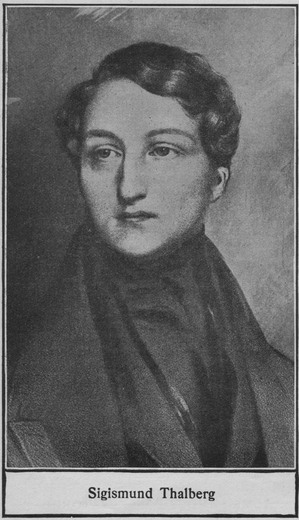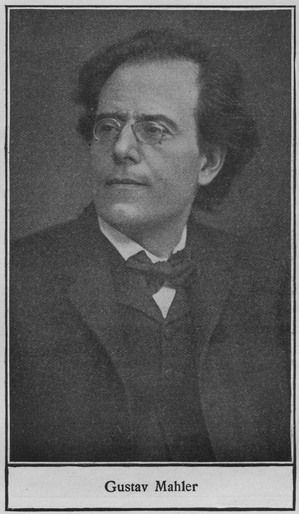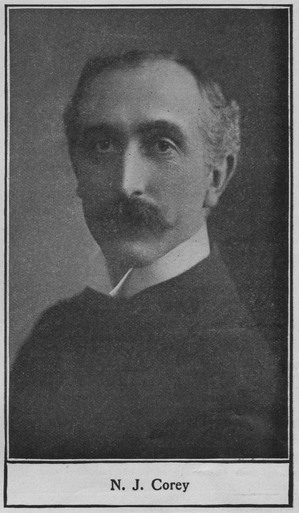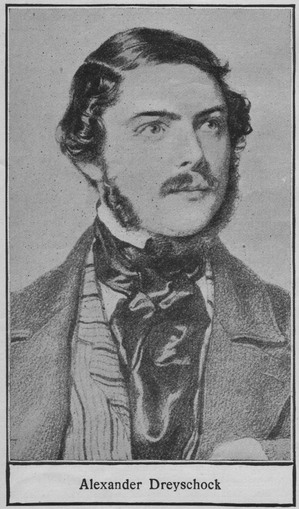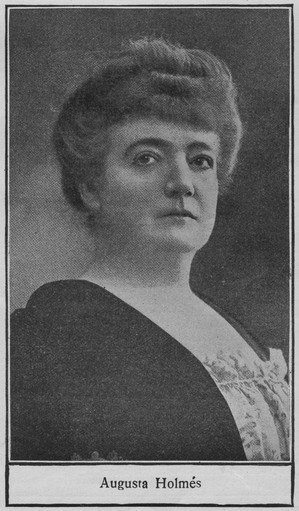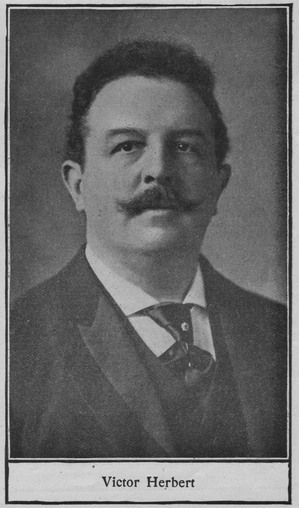(Tahl'-bairg.)
Thalberg was born at Geneva, January 7, 1812, and died at Naples, April 27, 1871. He was nominally the pupil of Hummel and Sechter, of Vienna, in pianoforte playing, though he was wont to declare that he owed most of his great skill as a pianist to Mittag, the first bassoon player at the Vienna Court Opera. He speedily made a name for himself in Vienna, both as composer and as pianist, and was appointed court pianist at that city in 1834. During the next year he went on tour throughout Europe, and was extremely successful in Paris, England, Belgium, Holland and Russia. In 1843 Thalberg married Mme. Boucher, the daughter of Luigi Lablache, and in 1845 he went on tour in Spain. He appears to have been fond of travel, as he made two trips to Brazil and one to the United States (1856). His operatic ventures in London and Vienna were neither of them successful. He composed much, principally, however, for the piano, excelling in a style of composition in which the melody is sustained by the thumb in either hand, while the accompaniment consists of all manner of arpeggio chords and scale passages up and down the keyboard. Liszt said of him, however: "Thalbergis the only artist who can play the violin on the keyboard," so he evidently possessed a remarkable legato touch.
Mahler was born July 7, 1860, at Kalischt, Bohemia. He was educated at the Gymnasium at Iglau, at Prague and, at the University of Vienna, where he also studied at the conservatory. After 1880 he conducted in various theatres in different towns in Austria, but in 1883 he became second capellmeister at Cassel. Two years later he succeeded Seidl at Prague. From there he went, in 1886, to Leipsic as coadjutor to Nikisch, and two years later to Pesth as opera director. In 1891 Mahler went to Hamburg, where he remained until 1897, when he became director of the Royal Opera, and director of the Philharmonic Concerts in Vienna. He has also conducted German opera at Covent Garden, London. In 1907 he became conductor at the Metropolitan Opera in New York, and has been acting in that capacity ever since. In 1909 he also became conductor of the New York Philharmonic. He has composed over half a dozen symphonies, a cantata, and several other orchestral works. He has also written two operas, though neither of them has been successful. Mahler has exercised a great influence upon contemporary music, and his strong will and dominant personality, combined with his great technical knowledge, have combined to make him that unique product of modern music—the virtuoso conductor.
Mr. N.J.Corey was born in Hillsdale, Mich., in 1861. His first music study was with M. W. Chase in Hillsdale College. He played the organ in the college church from the age of thirteen until his graduation from the literary department in 1880, when he removed to Boston. Here he procured an organ position almost immediately. The principal positions occupied were the Harvard Congregational (Brookline) and the Shepherd Memorial (Cambridge). His studies were pursued with S. B. Whitney (organ), J. C. D. Parker and B. J. Lang (piano), G. W. Chadwick and W. F. Apthorp (theory). In 1892 Mr. Corey went to the Fort Street Presbyterian Church of Detroit. He has been very successful with his lectures on musical topics, being the first to give lectures on Wagner with stereopticon illustrations. He has enjoyed the friendship of many famous musicians, and his lecture-recital on MacDowell was especially commended by that composer. He has given organ recitals at all the great expositions and in many of the great American cities. Mr. Corey has made many contributions to the musical journalism of the day, andEtudereaders have had exceptional opportunities of benefiting by his level-headed advice and encouraging help.
(Dry'-shock.)
Dreyschock was born at Zack in Bohemia, October 15, 1818, and died at Venice, April 1, 1869. In early youth he became a pupil of Tomaschek, at Prague. He began his travels through Europe in 1838, and continued them for about twenty years with little interruption. He reaped a tremendous harvest, both in cash and in honor. He was the recipient of numberless orders and decorations. In 1862 he became professor of the pianoforte at the Conservatory of St. Petersburg, and was at the same time chosen director of the Imperial School for Theatrical Music and appointed court pianist. He was obliged to give this up in 1868, however, on account of failing health. He went to Italy, and the following year he died. He was a pianist of astonishing technical ability, and Cramer said of him: "The man has no left hand! here are two right hands!" Grove's Dictionary declares that "Dreyschock was the hero of octaves, sixths and thirds, his execution thene plus ultra (the ultimate point) of mechanical training. He played principally his own pieces, though his repertoire included many classical works, which latter he gave with faultless precision, but in a manner cold and essentially prosaic." His compositions seem to bear out this criticism, and they are, generally speaking, left severely alone, in spite of the undoubtedly good workmanship which they show in their construction.
(Properly HOLMES).
(Ohl'-may. or Homes.)
Augusta Holmés was born in Paris, December 16, 1847, and died January 28, 1903, in Paris. She was the daughter of Irish parents, who were opposed to her adopting a musical career. She began her musical life as a prodigy-pianist and was very successful. She felt, however, a keen desire to compose, and while she studied to that end withH.Lambert, the organist of the cathedral at Versailles, it was not until 1875, when she commenced her studies under César Franck, that she really felt that she was on the high road to success. She possessed great independence of character, and wielded a skillful pen both as a writer and composer. She gained a second place after Dubois and Godard (bracketed together) at the musical competition instituted by the city of Paris in 1878. In 1880 she tried again in a similar competition, but obtained an "honorable mention." However, her work,Les Argonautes, attracted the attention of Pasdeloup, and its success upon performance showed that the competition judges had underestimated her worth. She had a grand opera produced in 1895 with great success, and wrote many works in symphonic form. Her works are not of a kind that appeal to the general public, but her songs, such as Thrinodia, On the Road, and the song-collectionLes Heures, are occasionally called for. She is probably the most ambitious woman composer the world has yet seen, and her works rank very highly.
Mr. Herbert was born in Dublin, February 8, 1859, and, on his mother's side, is a grandson of the famous novelist, Samuel Lover. He received his musical education at Stuttgart, choosing the violoncello as his solo instrument. For some time he was in the court orchestra at Stuttgart, but in 1886 he removed to New York, where his wife was singing at the Metropolitan. Herbert became a member of the orchestra at that institution, and soon took a prominent place in the musical world of New York. In 1894 he became bandmaster of the Twenty-second Regiment of the National Guard of New York, but gave up this position to become head of the Symphony Orchestra of Pittsburg. He resigned in 1904 to devote more time to composition. His serious compositions include a concerto and suite for Velio (1887) and a more important second concerto for 'cello in E minor; he has also written a dramatic cantata for the Worcester (Mass.) Festival, aSerenade for strings, a symphonic poem entitledHero and Leander, and other works of a similar description. It is by his excellent light operas, however, that he has appealed most to Americans, who have proved themselves more than willing to pay the piper when Victor Herbert calls the tune, with that irresistible "cosmopolitanized" Irish musical brogue of his. Such works as"Babes in Toyland," "Algeria," "It Happened in Nordland," "The Serenade," "The Fortune Teller," and others need no introduction to our readers.


